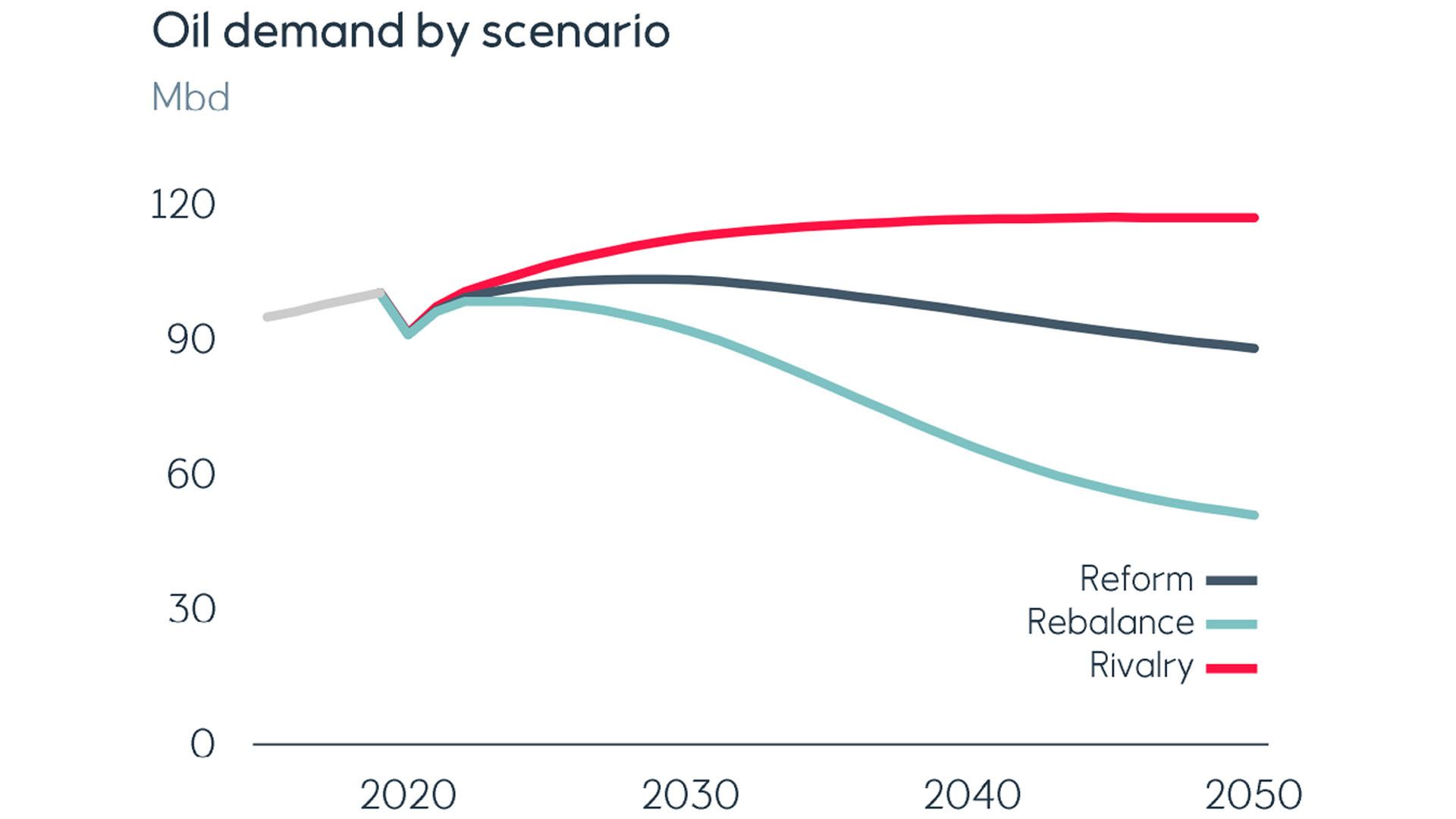| | | | | | | Presented By Chevron | | | | Generate | | By Ben Geman ·Nov 18, 2020 | | Good morning. Today's Smart Brevity: 1,347 words, 5 minutes. 🚨Situational awareness: "The Biden transition team is in the process of vetting Rep. Deb Haaland (D-N.M.) for the Interior secretary post." (The Hill) 🎶And Saturday marks the 25th anniversary of Bruce Springsteen's album "The Ghost of Tom Joad," so a slice of that storytelling provides today's intro tune... | | | | | | 1 big thing: The EV money surge |  | | | Illustration: Aïda Amer/Axios | | | | Growing amounts of cash are pouring into electric vehicle development that is underway via startups and legacy players. What's new: A report out this morning indicates GM will be announcing an expanded strategy to take on Tesla, plus the U.K. electric van and bus company Arrival announced it is going public. Driving the news, part 1: "General Motors Co will roll out details of an expanded and accelerated electric vehicle strategy on Thursday in an effort to convince investors it can be a serious competitor to Tesla Inc," Reuters reports, citing anonymous sources familiar with the plan. - GM is expected to say it intends to invest more on EVs than the previously outlined $20 billion by 2025, and to speed up plans to make its Cadillac brand all-electric, among other elements, per Reuters.
Driving the news, part 2: Arrival, the U.K.-based electric van and bus company, announced this morning that it's going public via merger with a special purpose acquisition company, or SPAC. - The deal to merge with CIIG Merger Corp values Arrival at $5.4 billion.
Why it matters: The Arrival deal marks the latest in a big wave of SPAC transactions in the EV space as investors bank on major growth in what's still a niche market. - Meanwhile, GM's latest move shows how incumbent automakers are increasingly concluding they need to go big into EVs to position themselves for the future, even though sales of internal-combustion models still dominate the market.
Where it stands: The Arrival deal includes around $400 million in additional funding from investors including Fidelity, Wellington Management, a BNP Paribas energy funds, and BlackRock-managed funds. What we're watching: Whether Arrival can make good on its plans, which initially focus on the commercial vehicle market. - But deep pockets like what they've seen so far from the company and its system, which uses lightweight materials and a skateboard EV chassis that can accommodate multiple vehicle designs.
Go deeper: Wall Street is searching for electric vehicle gold |     | | | | | | 2. The evolving EV lobby | | Source: Giphy Speaking of EV money, I want to spend another moment with the new Zero Emission Transportation Association, which brings together EV startups, utilities and others to lobby for policies that will spur huge growth sales over the next decade. - We wrote about them in yesterday's edition, but there's more to the story — one that involves a rival EV lobbying group.
State of play: There's already a longstanding EV trade group called the Electric Drive Transportation Association. It has some overlapping membership but also an important difference: Big legacy automakers like Ford and GM are in EDTA, but absent from ZETA. The intrigue: While incumbent automakers are investing big in EVs, The Verge, which also noticed the difference, points out that their lobbying can also collide with the interests of purely electric players. Background: The incumbent industry as a whole was initially supportive of the Trump administration's efforts to weaken Obama-era emissions and mileage rules. - But the situation got insanely messy when a handful of legacy companies sided with California's efforts to impose tougher standards.
What they're saying: I asked Joe Britton, ZETA's executive director, about the absence of the big established automakers and the difference with EDTA. - "We're cheering on everyone in the electric vehicle space and want to see them succeed. ZETA is unique in that we are bringing together those who are all-in on accelerating transportation electrification," he said.
- "By having a clear goal, we are empowered to advocate for consumers, domestic manufacturing, public health and global competitiveness."
- EDTA declined to provide comment.
|     | | | | | | 3. Zoom in: Looking at one Bezos climate grant | | Axios' Amy Harder reports: Jeff Bezos' $100 million grant to the Environmental Defense Fund is tied as the biggest donation the group has ever received in its more than 50-year history, CEO Fred Krupp tells Axios. Driving the news: The Bezos Earth Fund, the $10 billion fund Amazon founder and billionaire Jeff Bezos unveiled early this year, officially revealed its first recipients this week. They will receive a total of nearly $800 million. The intrigue: Krupp says Bezos' office called EDF earlier this fall inquiring about donating. "A few days later, I found myself on the phone with him and he said he didn't know much about climate change," Krupp says. - "And then every question he asked, every comment he made, indicated he had clearly been studying a lot about climate change and he was very knowledgeable."
By the numbers: The grant will be spent over three years, which means the donation amounts to about 16% of its total annual operating expenses. - The only other donation that matches this $100 million size is one by the now-deceased investor Robert Wilson, who gave away millions to conservation-minded groups.
- Overall, climate-change causes receive just 2% of philanthropic money, according to a recent report by the ClimateWorks Foundation (which was another recipient of Bezos' money).
How it works: EDF will use the money on two specific areas... - Completing construction and building out the data platform for a satellite tracking methane emissions, which are a potent greenhouse gas.
- Establishing a consensus standards system to ensure more transparency in the rather opaque world of carbon credits and offsets, such as in forests.
Read more |     | | | | | | A message from Chevron | | Chevron is powering a better future for all | | |  | | | | It's only human to want to build a better world. Chevron is working together with women and minority-owned businesses, spending $4 billion since 2014. Because we believe that valuable ideas only come when you value everyone. Learn more here. | | | | | | 4. The early skirmishes over Biden's Cabinet | | Source: Giphy "U.S. environmental activists are heaping pressure on Democratic president-elect Joe Biden to avoid Cabinet appointees with fossil fuel ties," Reuters points out. Why it matters: The incoming Biden administration is starting to announce important personnel picks, with Cabinet choices looming, and activists are keen to see advocates of aggressive climate policies. Driving the news: In one early skirmish, some activists are upset over the selection of Louisiana Democratic Rep. Cedric Richmond as senior adviser and director of the White House Office of Public Engagement. - The job, per Politico, involves outreach and collaboration with outside interests including climate advocates.
- Sunrise Movement executive director Varshini Prakash called the selection a "betrayal," citing substantial oil-and-gas industry donations to Richmond during his House careers, among other criticisms.
Quick take: It's the green movement's job to seek allies who have the president's ear and power within the White House. "Personnel is policy," as Sen. Elizabeth Warren likes to say. - But come on, man. The (likely) GOP Senate and the judiciary are way bigger checks on Biden's climate ambitions than these staffing decisions.
What we're watching: These battles going forward (if indeed there are more) are likely to show the strategic differences between various parts of the green movement. - Groups on the left flank, like Sunrise, 350.org and Greenpeace, won't hesitate to criticize decisions openly, while more establishment groups with stronger ties to the Democratic party prefer to try and exert influence privately.
Where it stands: The New York Times has a look at how the incoming administration hopes to see new climate policies emerge governmentwide, not just environmental and resource agencies. - "Biden's inner circle routinely asks 'is the person climate-ambitious?' of candidates even for lower profile positions like the White House budget and regulatory offices, according to a person advising the transition."
|     | | | | | | 5. Revisiting the oil demand peak timeline |  | | | Screenshot of chart from Equinor's "Energy Perspectives 2020" report | | | | Equinor's new long-term outlook sees oil demand peaking as soon as 2028. The big picture: That's just two or three years earlier than their prior projection in their "reform" scenario, which is their stab at modeling continuation of current market, tech and policy trends. - But it's nonetheless the latest sign of how COVID-19 is reshaping how energy analysts see the future in ways large and small.
- For instance, a BP analysis in September projected that demand will peak early this decade even without vastly stronger measures to combat climate change.
Go deeper: Equinor sees oil demand peaking 2-3 yrs sooner due to virus (Reuters) |     | | | | | | 6. Catch up fast: European edition | | Climate change: "Prime minister Boris Johnson has promised to mobilise £12 billion to put the UK on a path to achieve carbon neutrality by 2050, ahead of hosting the Cop26 climate summit next year." (Climate Home News) EVs: "Chancellor Angela Merkel's government offered Germany's hard-hit auto industry 5 billion euros ($5.9 billion) in aid to help weather the coronavirus crisis and invest in the transition to electric cars." (Bloomberg) |     | | | | | | A message from Chevron | | Chevron is powering a better future for all | | |  | | | | It's only human to want to build a better world. Chevron is working together with women and minority-owned businesses, spending $4 billion since 2014. Because we believe that valuable ideas only come when you value everyone. Learn more here. | | | | | | Axios thanks our partners for supporting our newsletters.
Sponsorship has no influence on editorial content. Axios, 3100 Clarendon Blvd, Suite 1300, Arlington VA 22201 | | | You received this email because you signed up for newsletters from Axios.
Change your preferences or unsubscribe here. | | | Was this email forwarded to you?
Sign up now to get Axios in your inbox. | | | | Follow Axios on social media:    | | | | | |







No comments:
Post a Comment